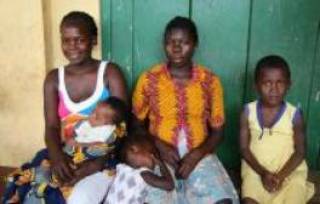Project Summary
The INSIST trial aims to develop, implement and evaluate the effectiveness and cost of interventions to improve newborn survival in Southern Tanzania. The interventions include a focus at the community level (community-based health worker conducting home visits) and at the facility level (quality improvements). The specific objectives of INSIST are:
- To develop and document a community-based package for improved newborn care, focused around interpersonal communication through home visits in pregnancy and the early neonatal period.
- To develop and document a quality improvement package for antenatal, intrapartum and postnatal care in health facilities.
- To implement these strategies for improved newborn survival in such a way as to be both sustainable and scaleable at national level.
- To monitor understanding of, and attitudes related to, neonatal care and survival from both health provider and community perspectives in areas with and without the interventions.
- To measure incremental costs and cost savings to the health sector and society associated with the interventions, and to predict the cost of integrating the programme into routine health service provision and of scaling-up
- To strengthen Tanzania's capacity to develop, implement and evaluate interventions to improve neonatal survival.
- To estimate the effect of the interventions on newborn morbidity and household behaviours related to newborn health.
The health system quality improvement package will be implemented throughout the area and evaluated using a before-after comparison. The community intervention will be implemented initially in a randomly-chosen half of all wards (a ward is an administrative sub-area of a district). Implementation will be led by existing front-line health staff. Evaluation will include a health facility survey and a household survey to assess contacts with the agents of change, key behaviours and newborn morbidity in the community.
 Close
Close


